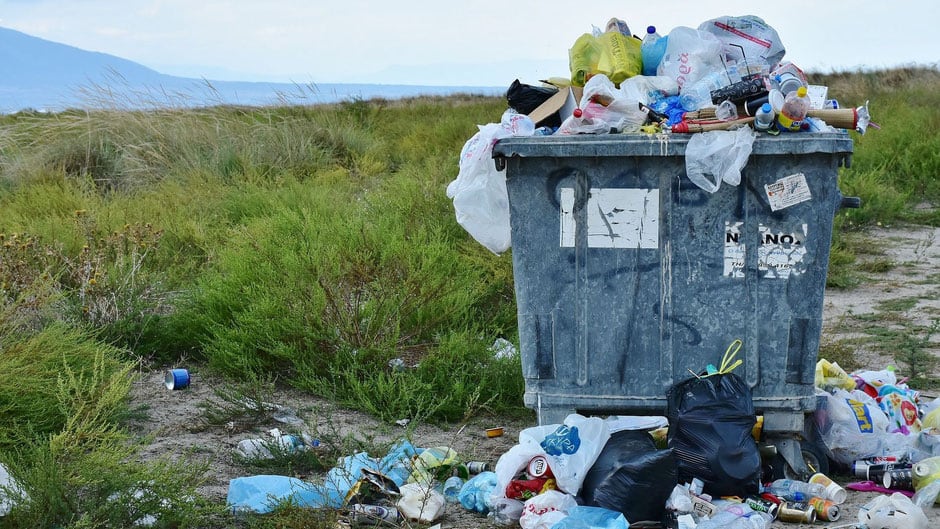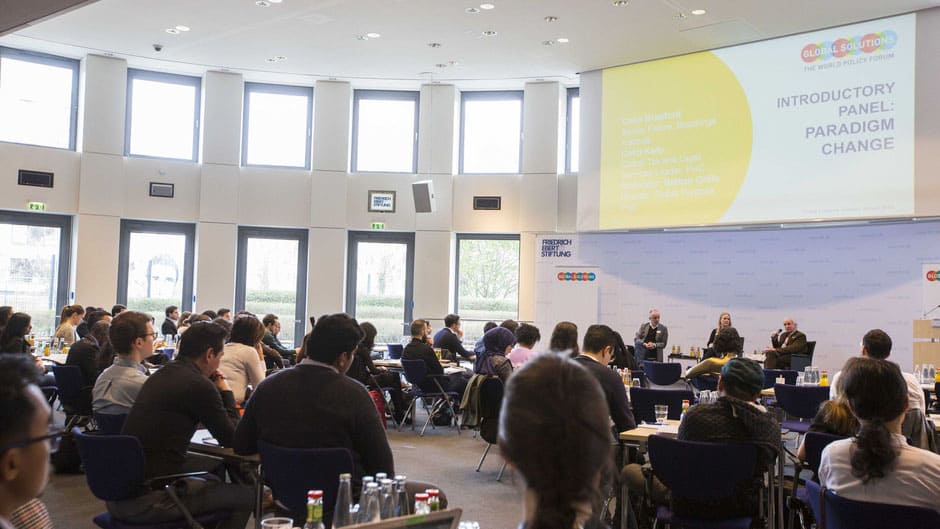A commentary by Julia Steinhauer (YGC, 2019)
Contributions by Stéphanie Carbonnelle (YGC 2019)
Closed cycles can be found in all aspects of life, except in our economy. In nature, the fallen leaves produced from trees nourish the soil with vital minerals which, in turn, serve plants to grow and fruits to form. Natural ecosystems do not produce waste and use all resources as efficiently as possible. However, in today’s economy, we are surrounded by linear processes and short product lifespans – a plastic fork is made from fossil fuels in an energy-intensive process, then used for one take-away french fry meal and thrown away, ending up in either a landfill or being burnt.
In recognition of today’s overlapping economic, environmental and cultural crises, the leading topic of the Global Solutions Summit 2019 was paradigm change. Researchers, politicians and business leaders came together to discuss how to recouple our economies with societal common good and positive environmental impacts.
As one of the working groups of the Young Global Changers, we have looked at the topic of circular economy as a potential way to achieve a paradigm change. During the Global Solutions Summit, we had many questions about how to finance the scaling-up of small circular economy projects. To our surprise, however, circular economy was not mentioned in the title of the summit program, nor was it part of this year’s G20 agenda.

Regardless of whether the session dealt with climate change or with the future of corporations, circular economy was largely omitted onstage. Even though the panelists were discussing paradigm change, only a few speakers, including Global Solutions President Dennis J. Snower, briefly mentioned the circular economy. Most discussions seemed to still be stuck in linear way of thinking, which we learn in schools, businesses and universities. When we brought attention to a circular economy to fix our economic system and tackle socio-environmental problems, our questions were largely left unanswered.
This startled us and brought us to an important realization: Before talking about policy solutions to move towards circular economies or ways to finance this, a common understanding of what circular economies are needs to be established.
Defining a circular economy
“A circular economy is an economic system where products and services are traded in closed loops or ‘cycles’. A circular economy is characterized as an economy which is regenerative by design, with the aim to retain as much value as possible of products, parts and materials,” according to the Ellen McArthur Foundation.
“This means that the aim should be to create a system that allows for the long life, optimal reuse, refurbishment, re-manufacturing and recycling of products and materials,” it reads on the foundation’s website. “It entails gradually decoupling economic activity from the consumption of finite resources and designing waste out of the system.”
What is preventing a paradigm shift towards circular economies?
One issue preventing such paradigm change is that economics courses in universities often fail to go beyond the neoclassical approach, failing to teach alternatives. This not only affects students but makes it difficult to find appropriate solutions for the current challenges in our societies at large. Our world is changing but we are not changing our models – a sentiment many of the Global Solutions Summit speakers shared in their panels.
Furthermore, a huge barrier to systems change is that economists are waiting for the perfect solution. The truth is: We do not have the time for that. Industries must escape from their old, tired models.

The need for cooperation
A circular economy is an abstract concept for many people because of its diverse applications and the lack of education about the topic. In order to turn the concept of a circular economy from something abstract into something concrete, we need to use our creativity to develop multiple, individualized prototypes that address local challenges. As changemakers, coming from different countries and continents, we discovered that our respective nations face very different and unique problems. How can we come up with one perfect solution, when the problems themselves are from such diverse horizons? The truth is we cannot. We must adapt solutions locally and integrate society and the environment.
The importance of cooperation for a paradigm shift was stressed in all panels at the Global Solutions Summit 2019. However, a lack of cooperation between policymakers, business leaders and civil society is one major reason why circular economies are failing to replace our linear economies. Moreover, the missing understanding of alternatives, and especially of a circular economy, does not make it easier for innovative projects to get funded.
In summary, a circular economy is a fundamental part of any paradigm shift in the economy and in our societies and can create vast positive effects moving us towards more balance between people, planet and the economy.
To some, a circular economy and zero-waste models may seem far-fetched, but we are not being idealistic dreamers. As the French lecturer Idriss Aberkane said, new concepts arise in three stages: At first, a new model is perceived as ridiculous and idealistic; afterwards as dangerous and finally as obvious.
As Young Global Changers, we urge decision-makers worldwide and the organizers of Global Solutions to make circularity a priority for the next summit and other upcoming events. We must move from discussing the problems and buzzwords, such as climate change, towards effective circular solutions on the ground.
The views and opinions expressed in this article are those of the authors and do not necessarily reflect the views of the Global Solutions Initiative.
